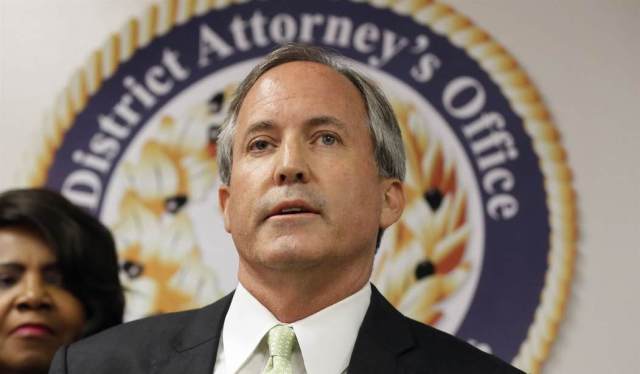Texas Attorney General Ken Paxton has filed lawsuits against five Texas cities for decriminalizing low-level possession of marijuana.
This from redstate.com.

The clash is a part of the overall debate concerning local policies aimed at reducing the criminalization of the plant and whether states should exert authority over localities.
In a statement, Paxton said:
[He] would not stand idly by as cities run by pro-crime extremists deliberately violate Texas law and promote the use of illicit drugs that harm our communities.
The lawsuit is intended to compel these cities to crack down even on low-level marijuana possession.
According to a Wednesday press release:
The lawsuits target Austin, San Marcos, Killeen, Elgin, and Denton over amnesty and non-prosecution policies related to marijuana possession and distribution.
Texas’ constitution and state law requires municipalities and counties to enforce state drug laws and prohibits policies that limit or prevent enforcement.
Paxton said in the release:
This unconstitutional action by municipalities demonstrates why Texas must have a law to ‘follow the law.’
It’s quite simple: the legislature passes every law after a full debate on the issues, and we don’t allow cities the ability to create anarchy by picking and choosing the laws they enforce.
Paxton’s lawsuit has met with its share of criticism. Ground Game Texas, an organization that helped to spearhead the move to get the proposition on the ballot, highlighted the overwhelming support from voters in these cities.
The group argued that this move is an:
[O]bvious attempt to deflect from Paxton’s embarrassing legal jeopardy and diminishing political influence.
However, those supportive of Paxton’s lawsuit insist that state law trumps local policies. They point out that this issue is part of an overall debate concerning prosecutors in local cities refusing to enforce state law.
But there are others who say that:
At the heart of the matter is the debate over whether state governments should meddle in the affairs of local municipalities, whose residents might favor policies like this one.
Should every Texas city be forced to comply with laws that clash with attitudes on the ground?
If this is the case, where should the line be drawn when it comes to local governments choosing not to prosecute certain types of offenses?
[I]f a local government has decided that low-level possession of marijuana is not exactly a cause worth expending law enforcement resources on, why should the state be allowed to interfere?
With marijuana illegal in the state of Texas, these conflicts are bound to come up on more than one occasion.
Even in cities outside of Texas, there is a push to overhaul laws that put people in cages for consuming a plant. It is not yet clear whether Paxton will win the lawsuits. But regardless of the outcome, it is clear that at some point, the Lone Star State will take up the marijuana debate.
With the backlash against laws prohibiting marijuana use, a larger conflict is clearly brewing. We the People may very well soon see a High Court decision concerning the legalization of marijuana. The only question remaining: Which High Court will show up for work that day, a conservative one, a compromised one, or an activist one?
Final thoughts: Whether you are for the legalization of marijuana or not, Texas enforcing state laws and prohibiting policies that limit or prevent enforcement of state laws is a noteworthy example for every state in the union.
States Attorneys choosing not to prosecute particular violations of state law is a slippery slope and the Soros-funded prosecutors spread around the country refusing not to prosecute and releasing law breakers is a painful example.
Another painful example of prosecutors run amok is the two-tiered system of in-justice employed throughout our beloved country. Laws must be enforced but they must be enforced equally for all.
God speed to Conservatism and to the enforcement of laws throughout our once-great nation.




